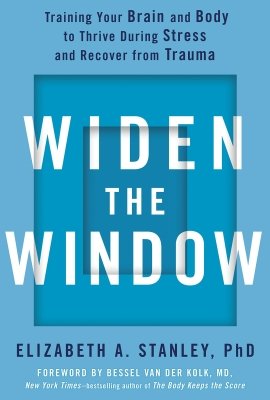Elizabeth Stanley
Former Fellow
Professional Affiliation
Associate Professor of Security Studies, Georgetown University
Expert Bio
Elizabeth A. Stanley, Ph.D., is associate professor of security studies at Georgetown University, jointly appointed in the School of Foreign Service and Government Department. She speaks, teaches, and writes about resilience, decision-making under stress, enacted systems, civil-military relations, military effectiveness and innovation, and international security. Her book, Paths to Peace, won the 2009 Edgar S. Furniss Award for the best first book in the fields of national and international security. She served as a U.S. Army intelligence officer in Asia, Europe, and on Balkans deployments, leaving service as a captain. She created Mindfulness-based Mind Fitness Training (MMFT)®, which she’s taught to thousands in high-stress environments. She’s a certified practitioner of Somatic Experiencing, a body-based trauma therapy. She holds a Ph.D. in Government from Harvard, an M.B.A. focused on technology strategy and organizational behavior from MIT’s Sloan School of Management, and a B.A. in Soviet and East European Studies from Yale.
Wilson Center Project
Techno-Blinders: How our Techno-Centric Security System Endangers U.S. National Security and What to Do about It
Project Summary
In light of today’s complex, ambiguous, and uncertain security environment, there’s been an insatiable desire since 9/11 for more resilient and adaptive security organizations—capable of orienting to threats, responding effectively and flexibly, and adapting and learning quickly. Yet the U.S. techno-centric security system—which Stanley calls “techno-blinders”—undermines the United States’ ability to develop such resilience and adaptability. This project examines the techno-blinders system, how it developed, the imbalances it has created, and why it is no longer effective. The project addresses how to create adaptive capacity in the U.S. security system, so that the technology supports the humans—rather than the other way around.
Major Publications
- Publication One: Elizabeth A. Stanley, Paths to Peace: Domestic Coalition Shifts, War Termination and the Korean War (Palo Alto, CA: Stanford University Press, 2009), 424 pp.
- Publication Two: Risa A. Brooks and Elizabeth A. Stanley, Eds. Creating Military Power: The Sources of Military Effectiveness (Palo Alto, CA: Stanford University Press, 2007), 252 pp.
- Publication Three: Douglas C. Johnson, Nathaniel J. Thom, Elizabeth A. Stanley, Lori Haase, Alan N. Simmons, Pei-an B. Shih, Wesley K. Thompson, Eric G. Potterat, Thomas R. Minor, & Martin P. Paulus. “Modifying resilience mechanisms in at-risk individuals: a controlled study of mindfulness training in Marines preparing for deployment,” American Journal of Psychiatry, Vol. 171, no. 8 (2014): 844-853.
Insight & Analysis by Elizabeth Stanley
Filter
- Book
- Global Health
Widen the Window: Training Your Brain and Body to Thrive During Stress



